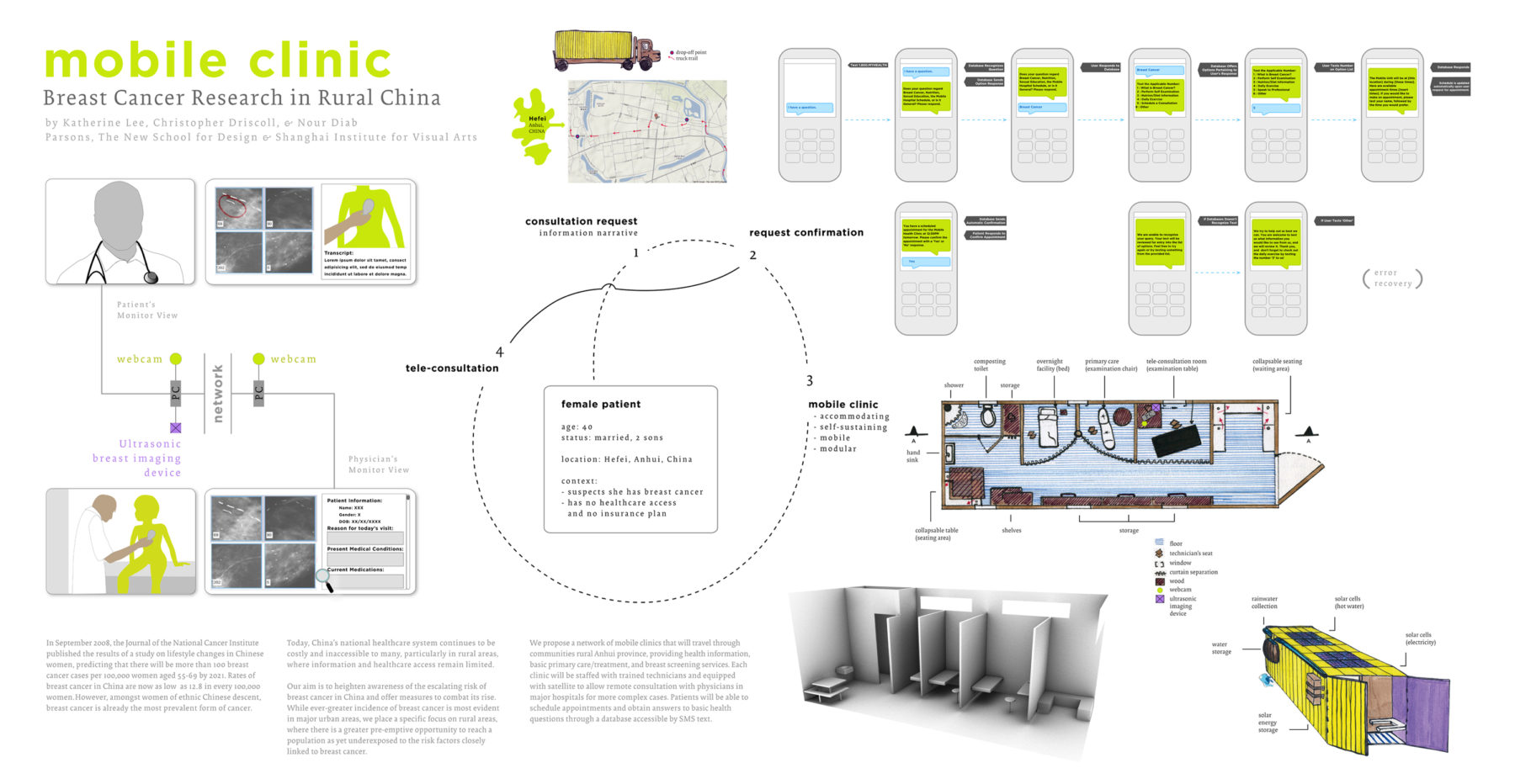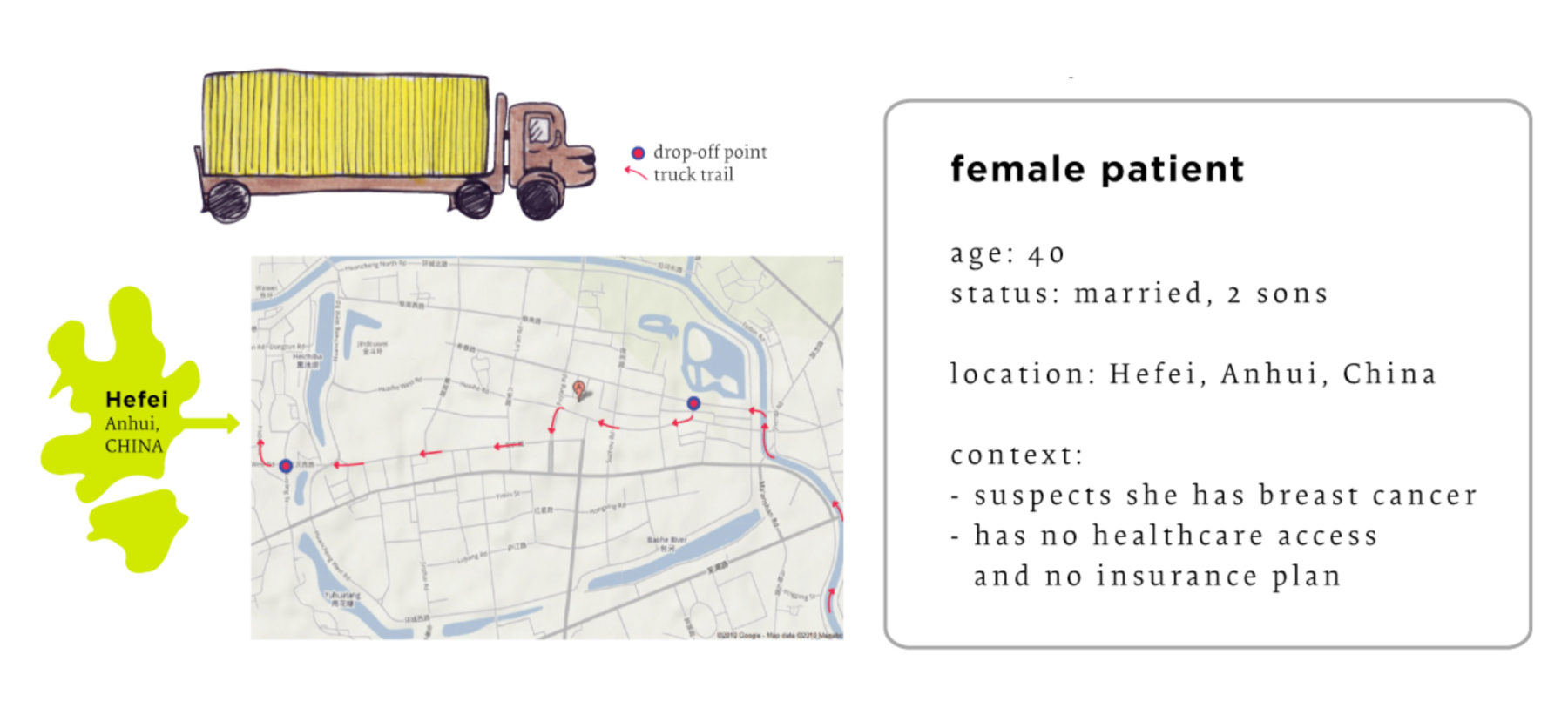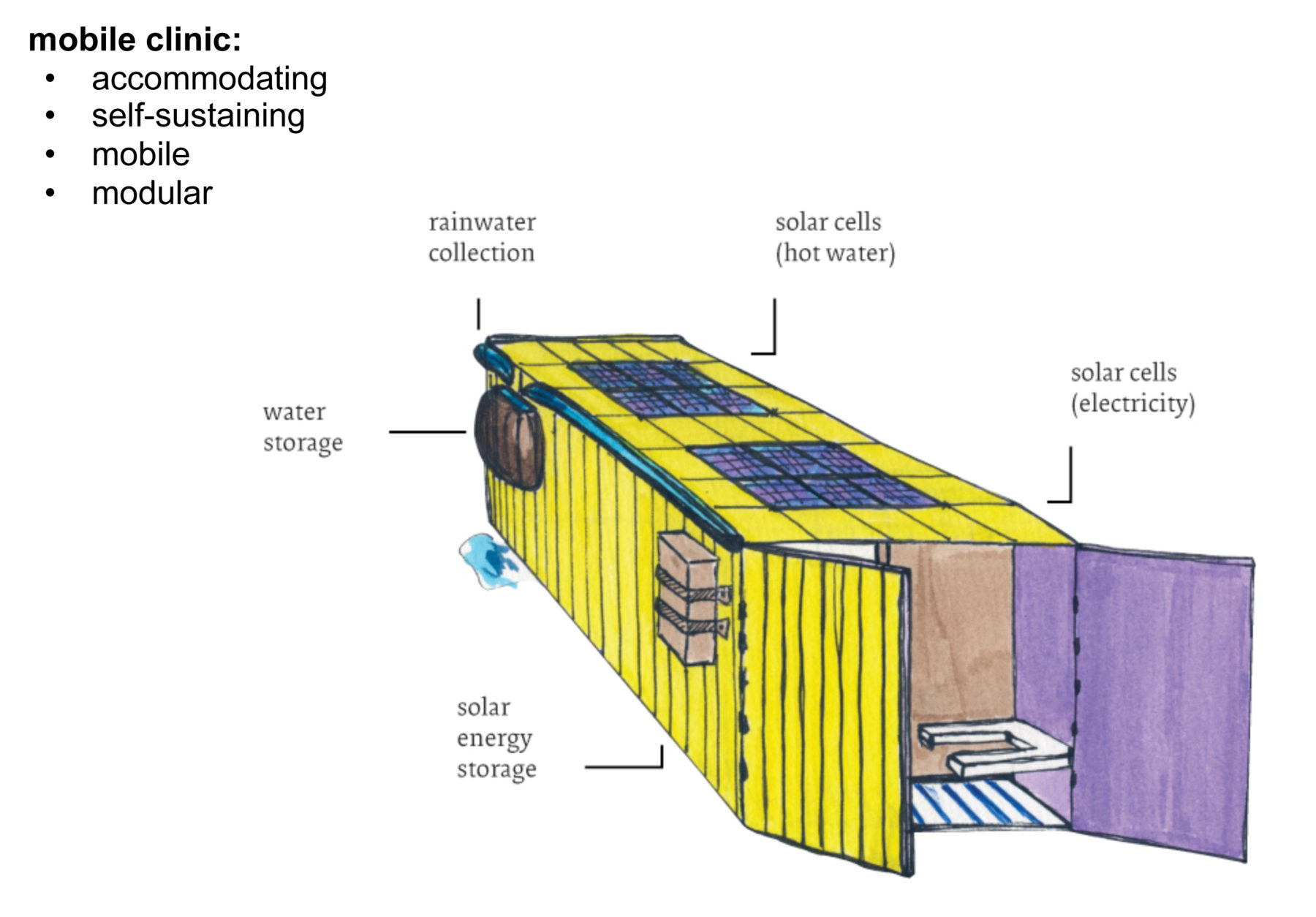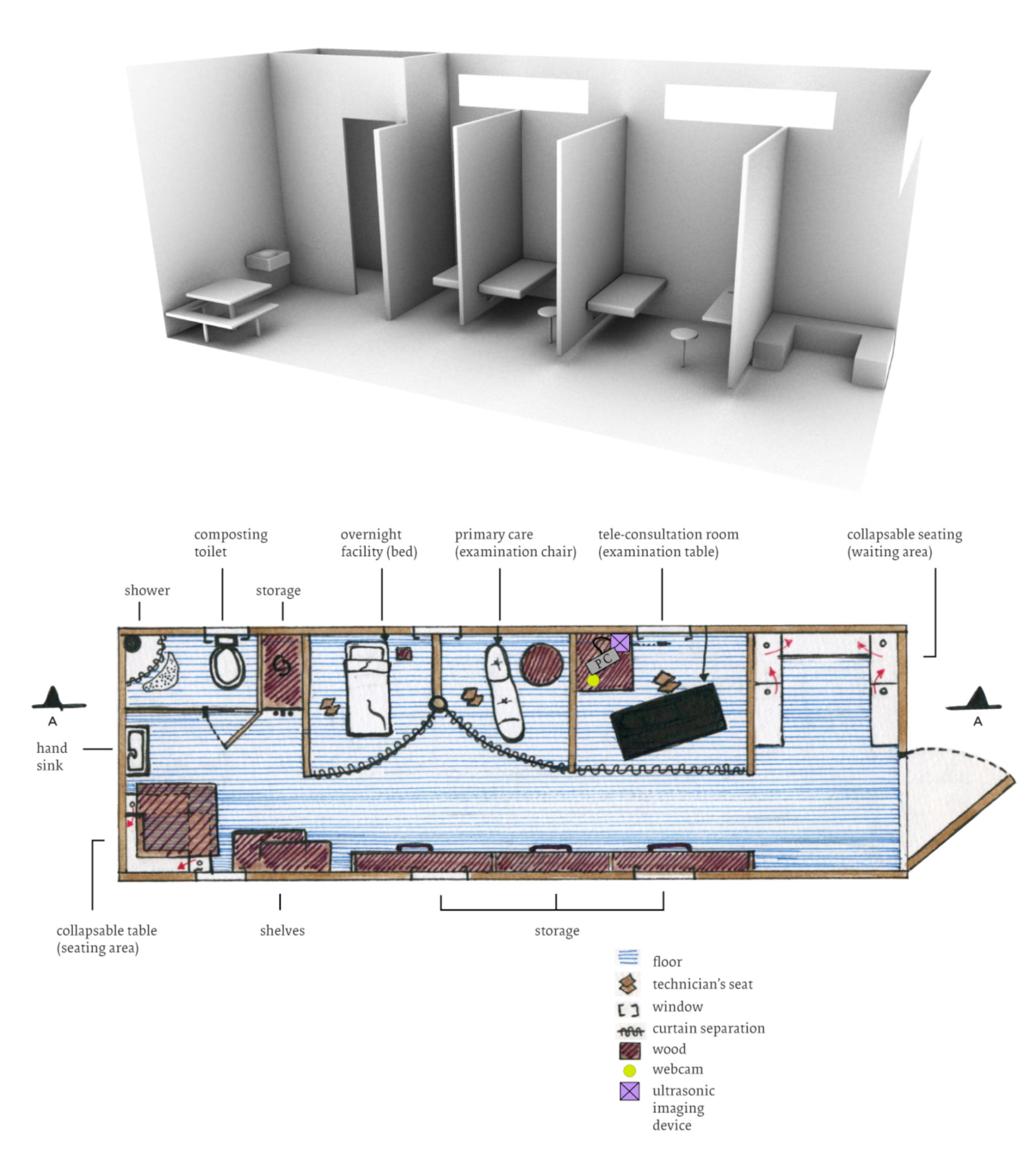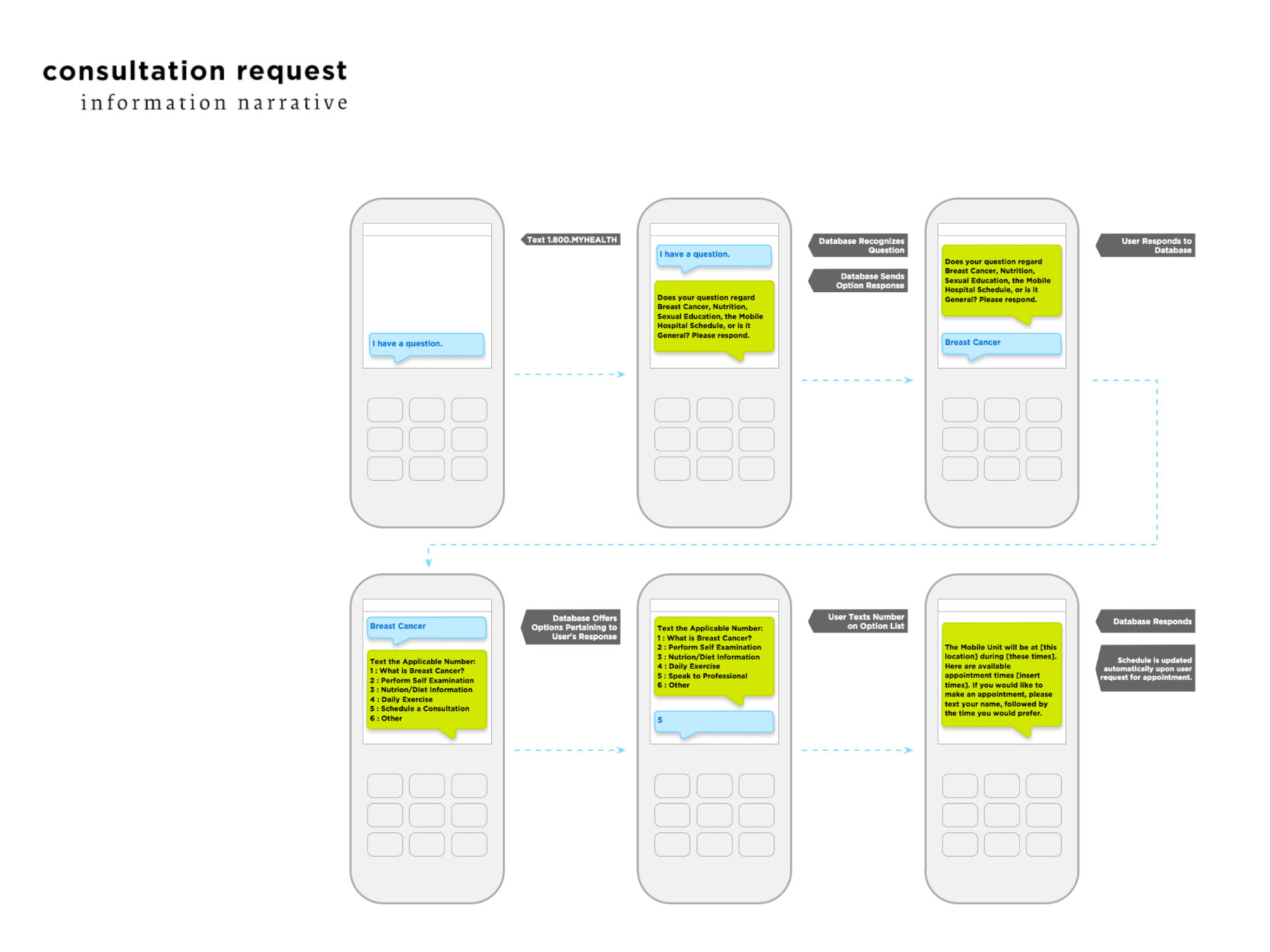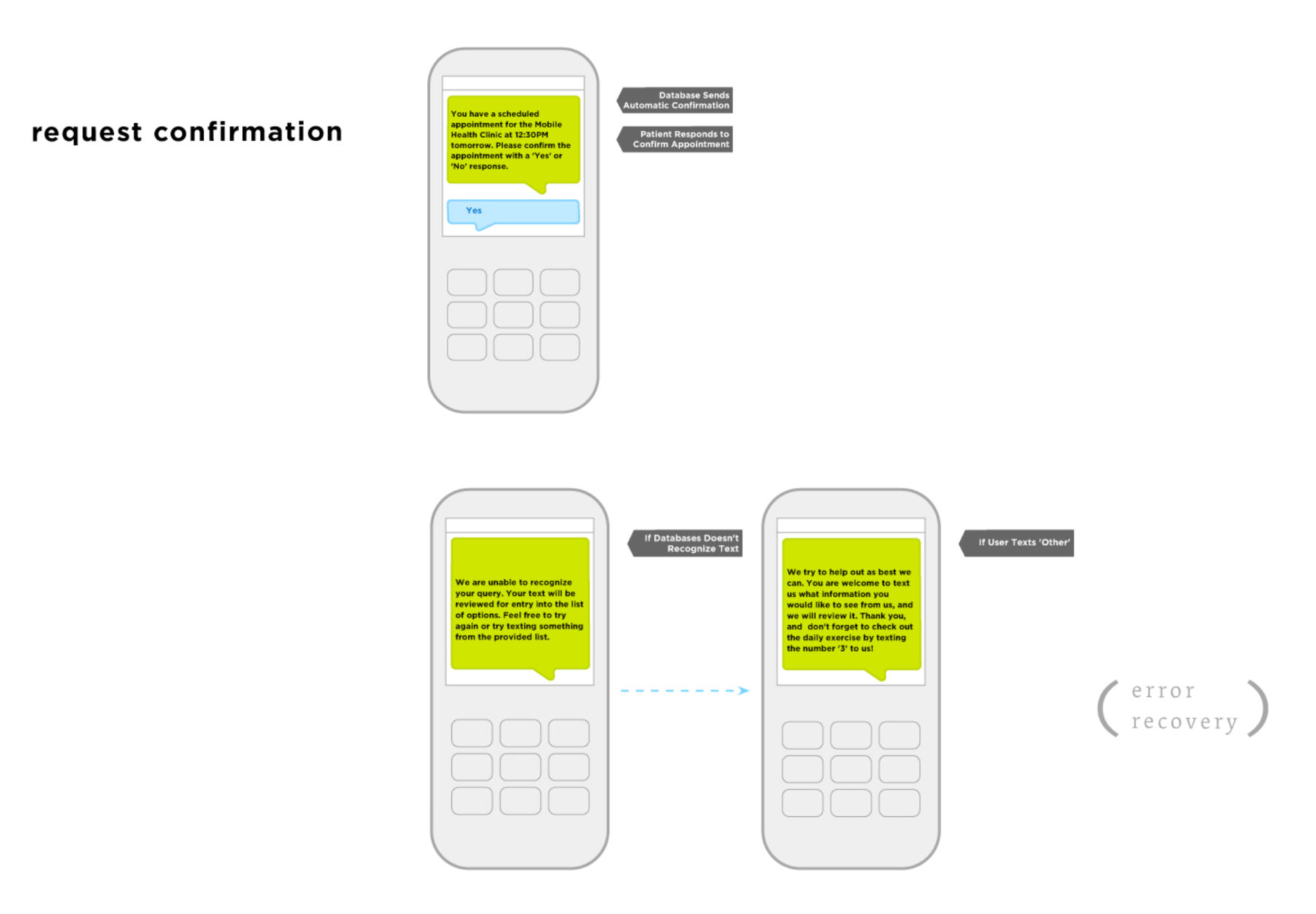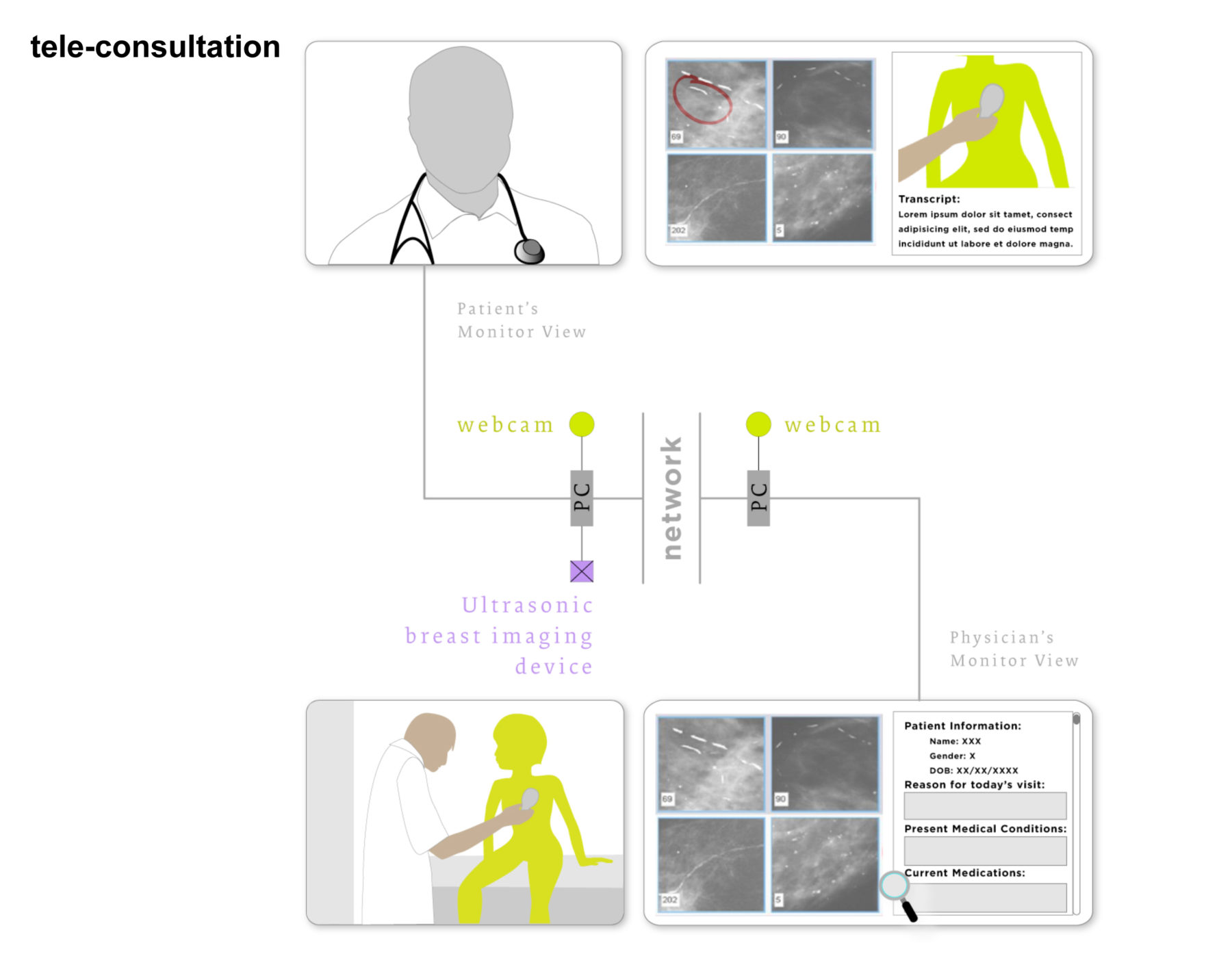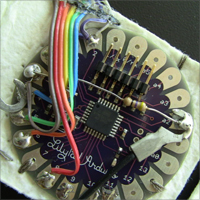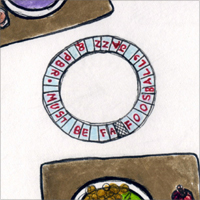Parsons & Shanghai Institute of Visual Art: Design for the Majority
(collaboration) Text-based narrative: Christopher Driscoll; Tele-consultation interface: Katherine Lee
In September 2008, the Journal of the National Cancer Institute published the results of a study on lifestyle changes in Chinese women, predicting that there will be more than 100 breast cancer cases per 100,000 women aged 55-69 by 2021. Rates of breast cancer in China are now as low as 12.8 in every 100,000 women. However, amongst women of ethnic Chinese descent, breast cancer is already the most prevalent form of cancer.
Today, China’s national healthcare system continues to be costly and inaccessible to many, particularly in rural areas, where information and healthcare access remain limited.
mobile clinic serves as a template to be customized by region based on contextual healthcare needs and demands.
Our aim is to heighten awareness of the escalating risk of breast cancer in China and offer measures to combat its rise. While ever-greater incidence of breast cancer is most evident in major urban areas, we place a specific focus on rural areas, where there is a greater pre-emptive opportunity to reach a population as yet underexposed to the risk factors closely linked to breast cancer.
This concept offers a network of mobile clinics that will travel through communities of rural Anhui province, providing health information, basic primary care/treatment, and breast screening services. Each clinic will be staffed with trained technicians and equipped with satellite to allow remote consultation with physicians in major hospitals for more complex cases. Patients will be able to schedule appointments and obtain answers to basic health questions through a database accessible by SMS text.

